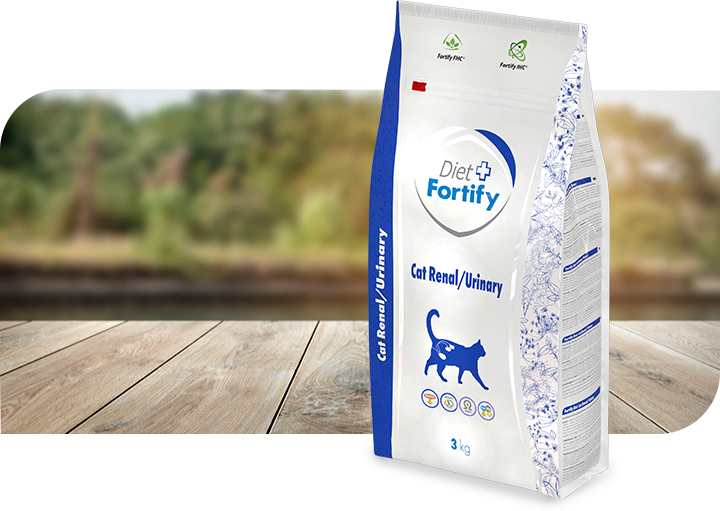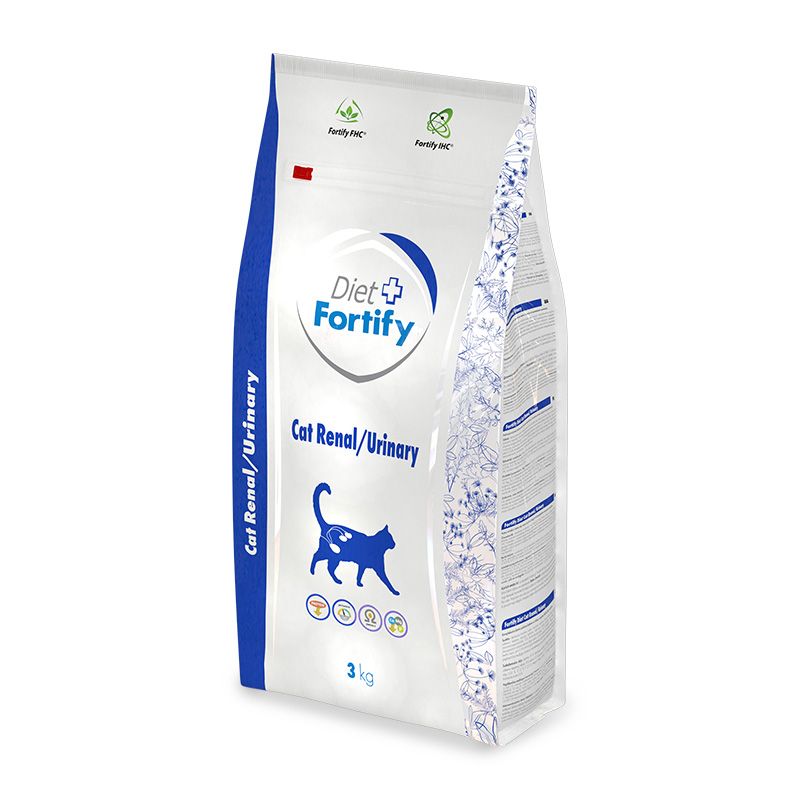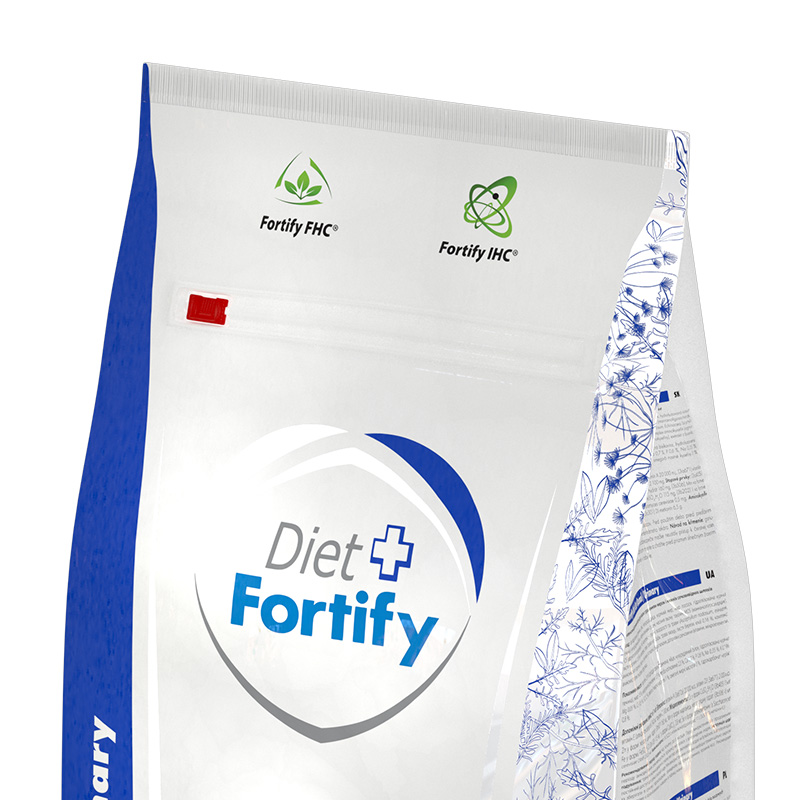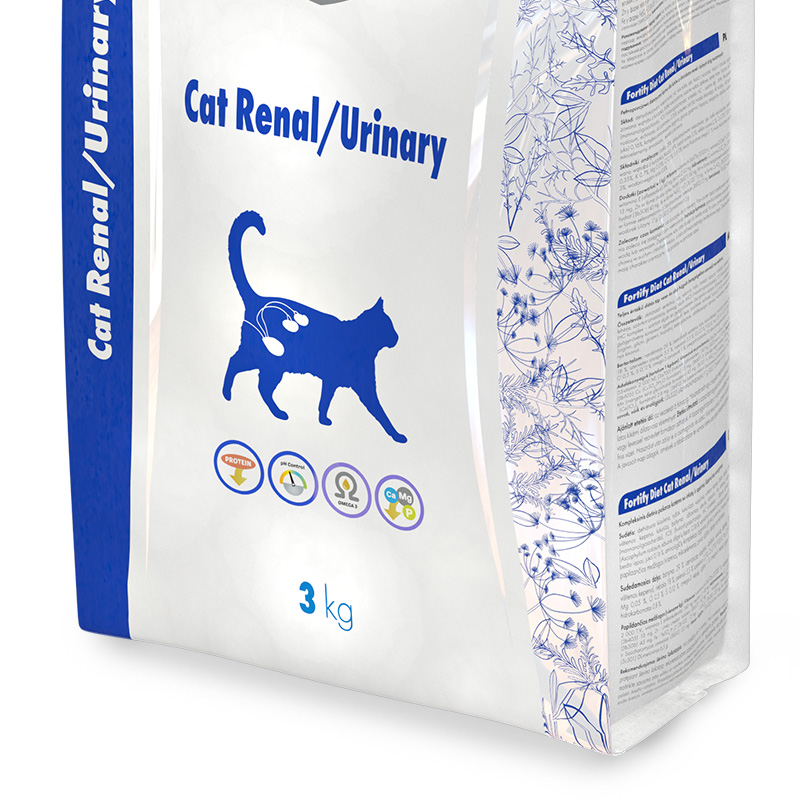Fortify Diet Cat Renal / Urinary
1
Veterinary diet for cats with kidney disease


2
Characteristics
- reduced protein content - reducing the burden on the kidneys, maintains urine pH between 6.3 and 6.5;
- reduced calcium, phosphorus and magnesium levels - preventing urinary stones;
- increased sodium levels along with the herbal complex increases urine production;
- unsupplemented vitamin C - precursor of oxalates;
- high content of omega-3 fatty acids - reduces hypertension, arrhythmia, slows the progression of renal failure;
- increased level of vitamin E - neutralizes free radicals, helps against urolithiasis.
3
Indications and contraindications
Indication
- chronic renal insufficiency
- prevention of struvite, calcium-oxalate and calcium-phosphate crystals
- diseases of the lower urinary tract
Contraindications
- do not use for kittens, pregnant and lactating cats
- do not use concomitantly with urine acidifiers

Fortify Immunity Herbal Complex
Fortify Function Herbal Complex
Fenugreek officinalis (Taxacum officinale)
It has a positive effect on the kidneys, it helps with inflammation of the urinary tract and kidney stones.
Horsetail stem (Equisetum arvense)
It has a diuretic, strong disinfectant and anti-inflammatory effect. It helps to flush out some forms of kidney stones.
Birch leaf (Betula pendula)
Diuretic for inflammation of the urinary tract, helps in the treatment of some forms of kidney stones.
Cranberries (Vaccinium vitis-idaea)
A powerful source of antioxidants that protect the body from the effects of free radicals.
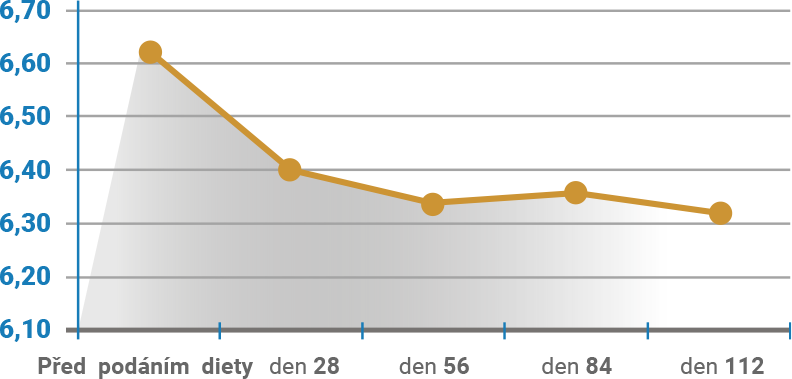
 Average urine pH
Average urine pH
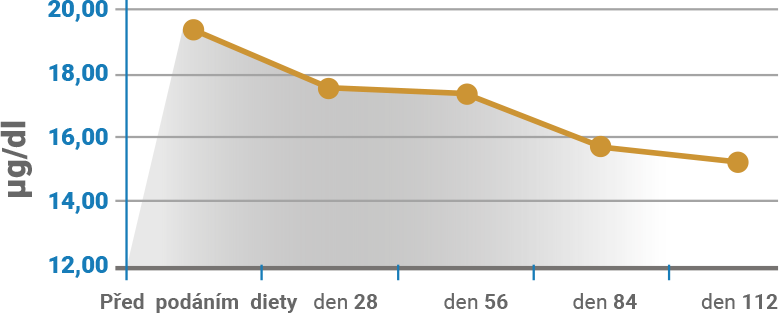
 Average SDMA values
Average SDMA values
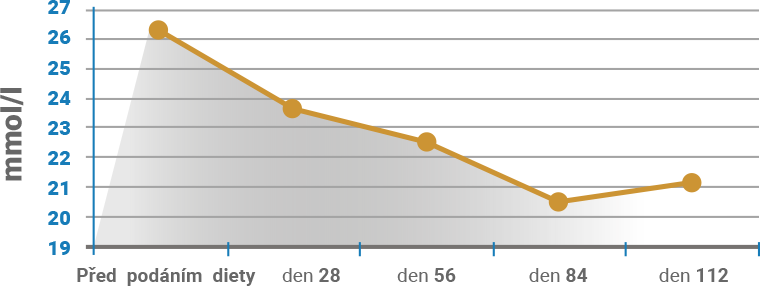
 Average UREA values
Average UREA values
Composition
 Content:
Content:
 Analytical components:
Analytical components:
 Additives (content in 1kg):
Additives (content in 1kg):
Recommended daily intake
| Cat weight | 3 kg | 4 kg | 5 kg | 6 kg | 7 kg |
|---|---|---|---|---|---|
| Feed ration | 45 g | 60 g | 75 g | 90 g | 100 g |
Administration
You ask, we answer
Can I buy food from you directly or on an e-shop?
The food cannot be purchased directly from us, Fortify is only available from veterinarians.
Where can I find out the price of feed?
Please check the price of the food with the veterinarian where you wish to purchase the food.
What is the quality of the meat from which the feed is made?
It comes from healthy animals that are intended for human consumption.
What percentage of animal protein does your feed contain?
Depending on the type, dog food contains 55-76% animal protein and cat food contains 71-82% animal protein.
